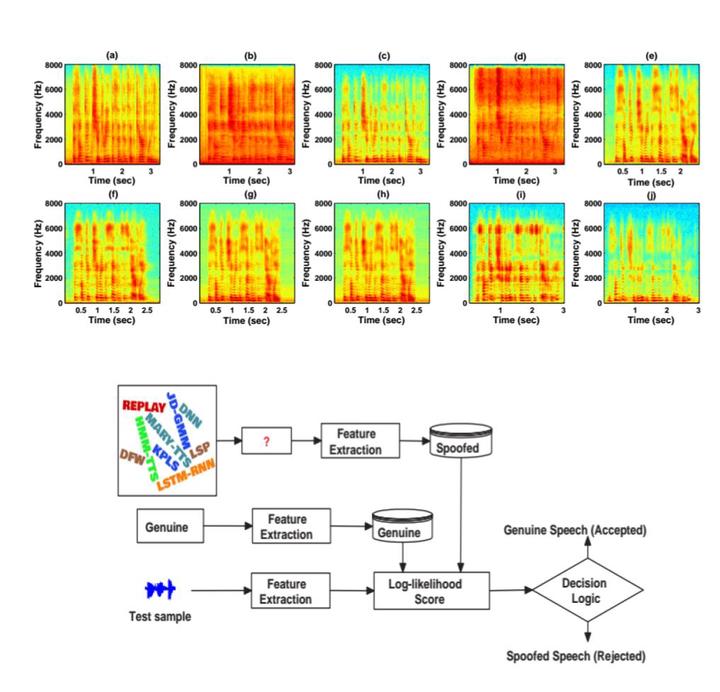Generalization of Spoofing Countermeasures: a Case Study with ASVspoof 2015 and BTAS 2016 Corpora
 Diagram
Diagram
Abstract
Voice-based biometric systems are highly prone to spoofing attacks. Recently, various countermeasures have been developed for detecting different kinds of attacks such as replay, speech synthesis (SS) and voice conversion (VC). Most of the existing studies are conducted with a specific training set defined by the evaluation protocol. However, for realistic scenarios, selecting appropriate training data is an open challenge for the system administrator. Motivated by this practical concern, this work investigates the generalization capability of spoofing countermeasures in restricted training conditions where speech from broad attack types are left out in the training database. We demonstrate that different spoofing types have considerably different generalization capabilities. For this study, we analyze the performance using two kinds of features, mel-frequency cepstral coefficients (MFCCs) which are considered as baseline and recently proposed constant Q cepstral coefficients (CQCCs). The experiments are conducted with standard Gaussian mixture model - maximum likelihood (GMM-ML) classifier on two recently released spoofing corpora, ASVspoof 2015 and BTAS 2016 that includes cross-corpora performance analysis. Feature-level analysis suggests that static and dynamic coefficients of spectral features, both are important for detecting spoofing attacks in real-life condition.